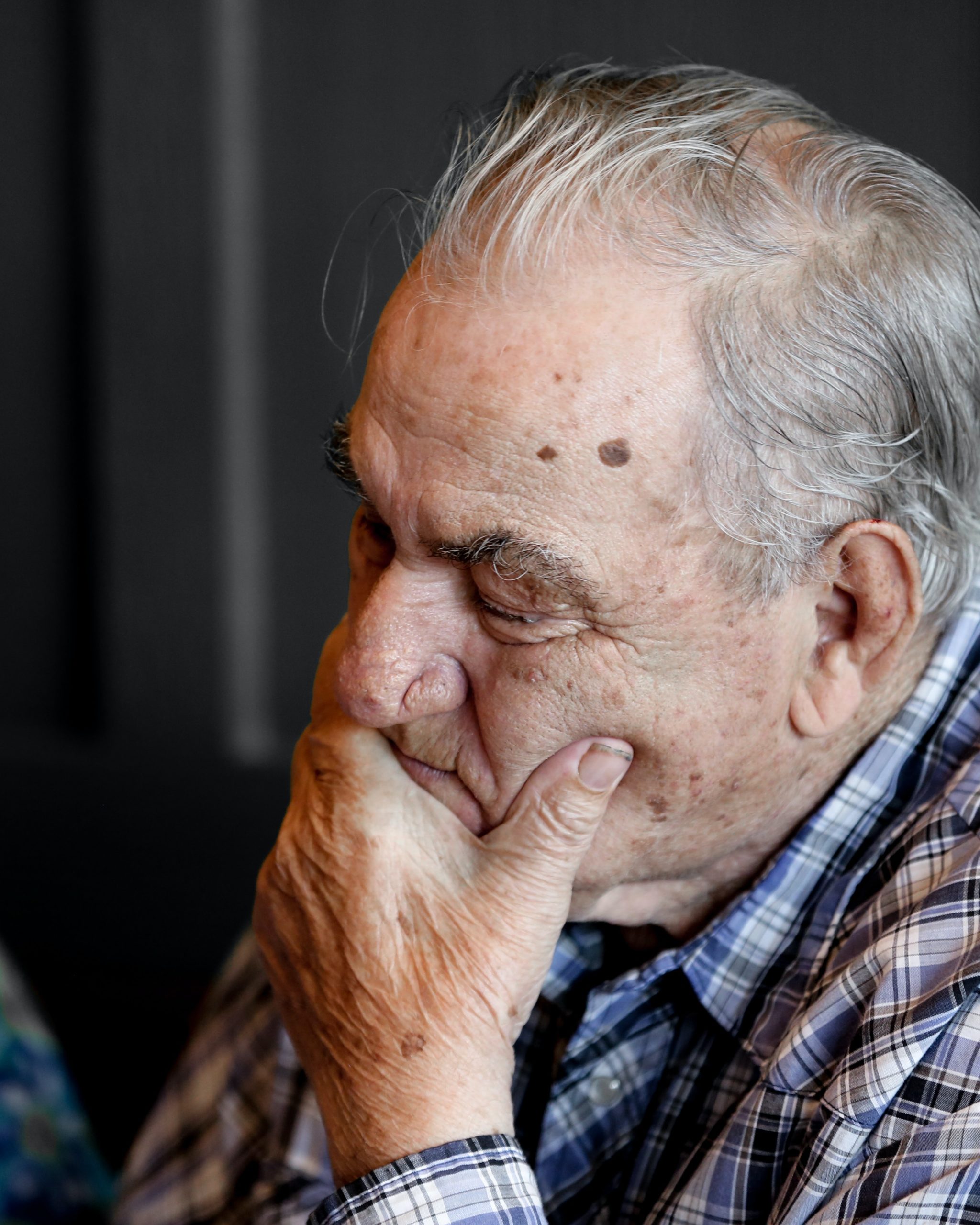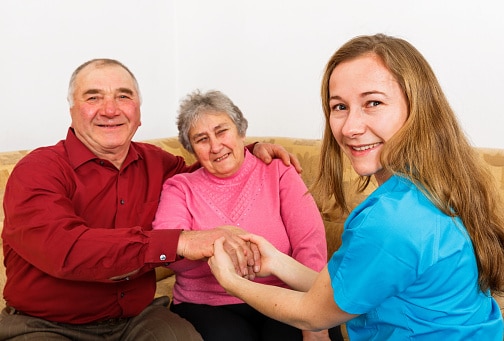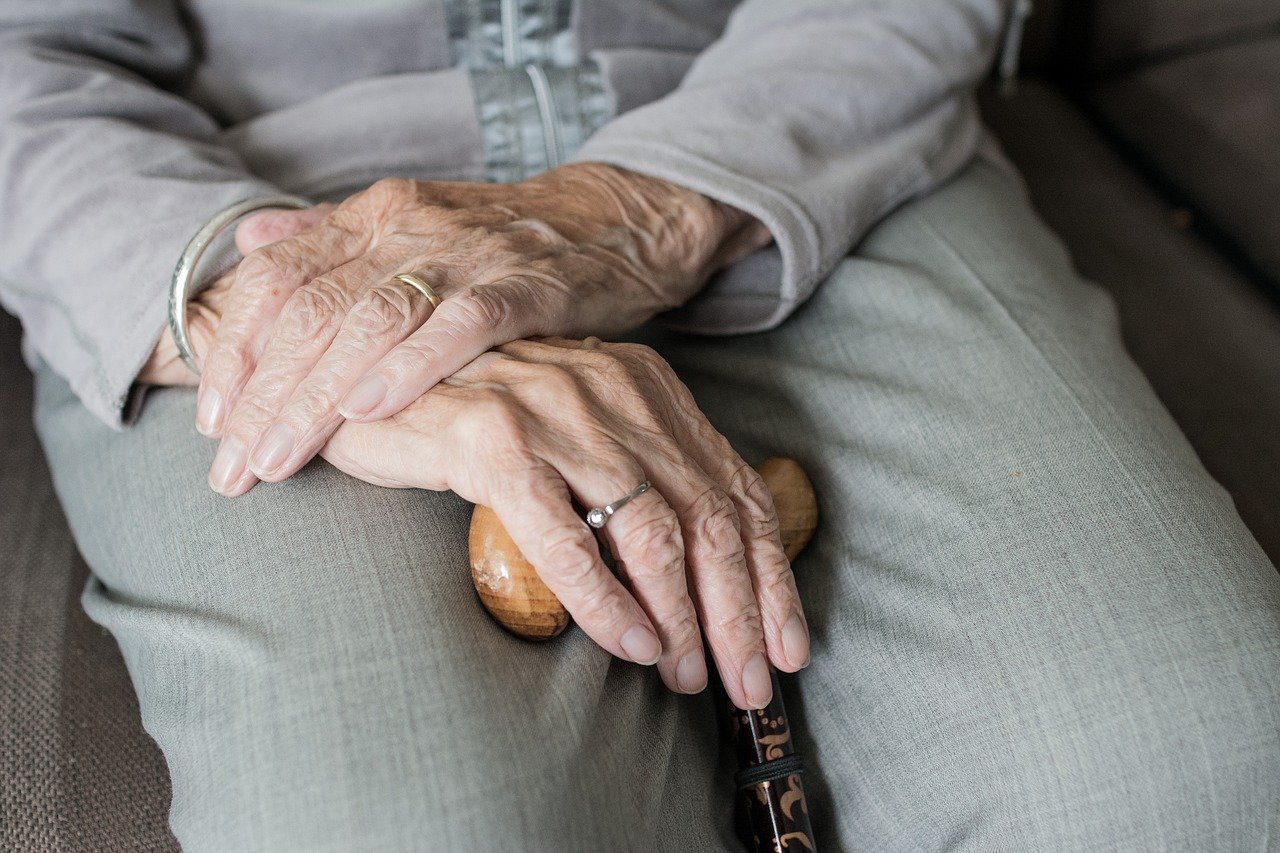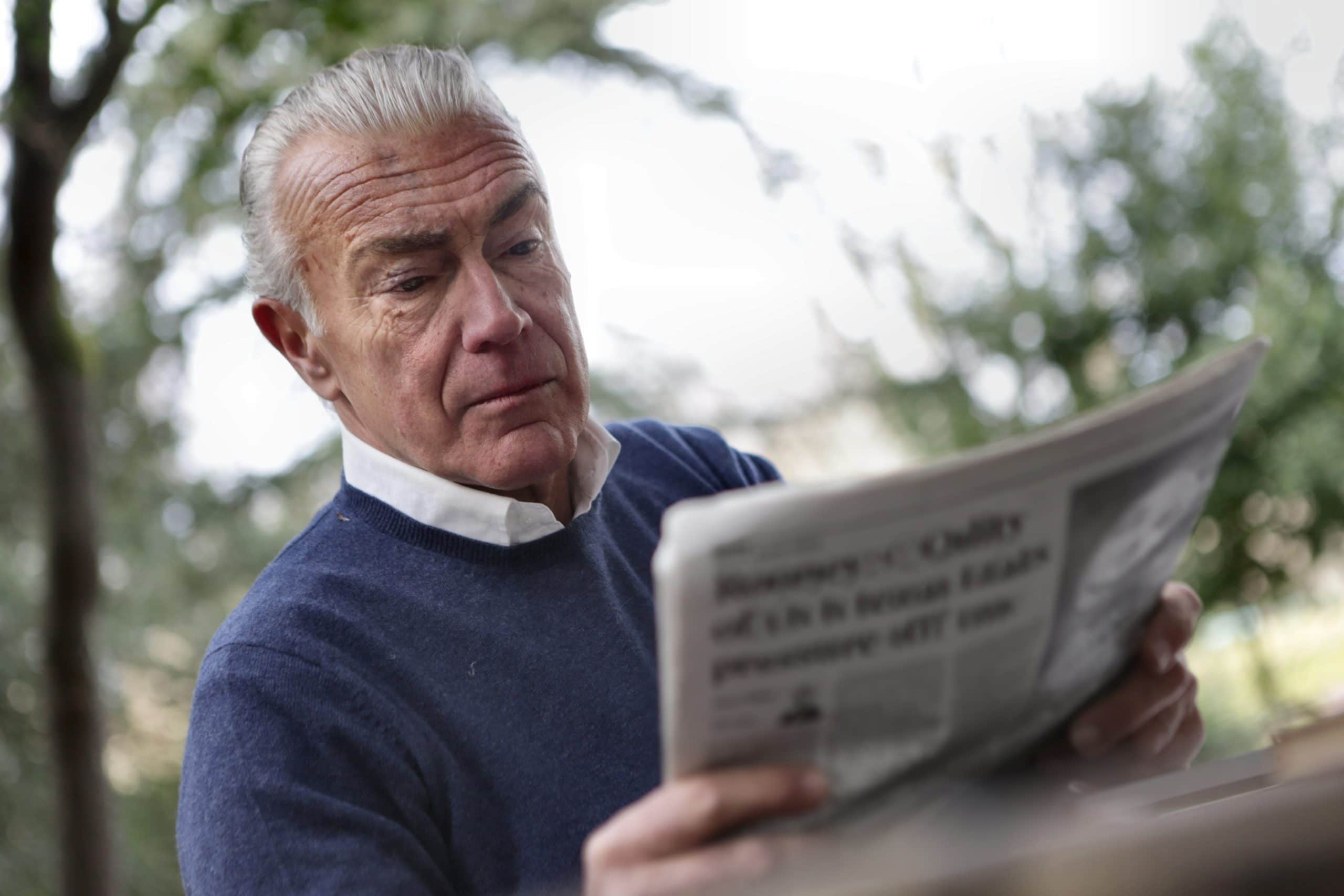
Activities for Dementia Patients
This article has been medically reviewed by Dr. Martin Duggan in 2021
This content is not intended to be a substitute for professional medical advice, diagnosis, or treatment. Always seek the advice of your physician or another qualified health provider with any questions you may have regarding a medical condition.
Sometimes, it feels impossible to engage with someone who suffers from dementia. However, promoting healthy activities allows caregivers to help seniors with dementia live a more connected and meaningful life.
Maybe you are caring for a loved one, or you work in assisted living or home care. Regardless of the setting, you may sometimes worry about running out of things to do to keep your loved one engaged. Each individual is unique in their interests and strengths or weaknesses. Our loved one’s individuality does not disappear as they age. Because people are so unique, when dementia causes someone to lose the ability to communicate their interests, it can be challenging for caregivers to find ways to keep them engaged. Many caregivers feel overwhelmed when trying to think of activities for dementia patients that help them stay active, peaceful, and happy.
Luckily, there are meaningful activities of all sorts that have shown to promote social connection, personal growth, and overall mental health in people suffering from dementia. Together we will review the obstacles and explore some activities for dementia patients and how to enact them.
What Are the Obstacles to Staying Active?
As many caregivers experience firsthand, dementia can make activities that are otherwise approachable become very challenging. Obstacles to staying active can include deterioration of communication, memory, emotional control, or even unpredictable changes to personality. Sometimes dementia patients will exhibit totally different attitudes toward prior hobbies and things they used to enjoy.
Though the urge to treat these progressive changes with medication may be present, research has provided other options. Various types of stimulation can promote physical and emotional comfort and facilitate self-expression. This has been shown to be true even for patients in the late stages of dementia.
Cater to your Loved One’s Needs
Each patient, caregiver, and situation is unique. It’s important to remember that what may work for one individual may not work as well for others. That’s okay! As we discuss how to introduce activities, we’ll also explore many different goals. Regardless of your caregiving situation, there are accessible options for you.
Ask yourself a few questions. How can you involve others- perhaps family, friends, or other trusted individuals? How can you customize your ideas to make them enjoyable to your loved one? The most meaningful activities are often those that are tailored to the individual needs of the specific person with dementia.
Addressing Dementia’s Unique Challenges
An essential step of this process is to meet an individual where they are. This may involve some compromise and simplification of the activities you had planned. Some patients may struggle with hands-on, active participation, like art projects. Many of these same people would instead enjoy passive activities like listening to relaxing music. It’s also possible that activities that were once fun may become less enjoyable for the dementia sufferer due to increased difficulty with the activity or due to changes in personality brought on by the disease.
Dementia is often hard on families and caregivers, especially when someone struggles to communicate or remember important details. Sometimes finding brand new activities to enjoy together can help address this challenge in a way that allows the caregiver and family to make new memories, rather than focus on what has been lost.
It’s also important to note that valuable activities for those with dementia aren’t limited to hobbies or pastimes. Activities can include practicing and participating in crucial life skills, or perhaps parts of a daily routine. These tasks can be just as essential as more conventional forms of activity, like physical exercise or movement.
What Are Good Activities for Dementia Patients?
To answer this question, we should also ask, “what are some activities that may help a person with dementia engage socially, physically, or mentally with others?” Regardless of whether an activity is passive or active, it should include ways to participate and engage. In early dementia, activities that promote mental, social, and physical participation should be emphasized. In advanced dementia, participation and engagement can take the form of simple hand-holding and eye contact during a passive activity.
An important part of the engagement, regardless of the activity, is encouragement and positive reinforcement. Some of the plans you implement may be challenging or frustrating at times. But an increased activity level is almost always preferable to the status quo. Plus, if an activity goes well, it might even have the power to spark new memories and conversations.
Categories of Activities for Dementia Patients
Below, we’ll break down some different activity categories and some of the potential benefits they may provide.
Sensory Stimulation Activities
- Sensory stimulation activities for dementia patients engage one or more of the physical senses in some way. Keeping the senses active may help enhance other functions as well. Engaging the senses can be as easy as playing music or feeling various objects and materials. These activities can provide mental stimulation and may help reduce other harmful or challenging behaviors. They may also improve functionality or make it easier for a patient to communicate about specific experiences or ideas. These activities can easily be incorporated into small or larger groups to promote social growth and improved communication.
Physical Activities
- Exercise is vital for everyone regardless of health or age. This is especially true for those with dementia. The benefits of physical activity closely mimic those of sensory activities. Physical activity isn’t limited to traditional exercise, though. It may include simpler activities or those that overlap with life skills like walking, preparing food, etc.
Life Skills
- As mentioned above, life skills are often incorporated into other activities. Life skill activities specifically target the different actions a person might perform to care for themselves. This can involve taking care of physical needs, or maybe cleaning up a part of the house. Life skill activities may provide comfort or a sense of familiarity for someone with dementia. It can also improve their confidence.
Mentally Stimulating Activities
- Mentally stimulating activities specifically target the brain, and they can take a lot of different forms. They might include games for dementia patients (memory games, card games, puzzles) or other activities that engage the mind. Some forms of dementia have been shown to progress more slowly in patients who stay mentally active. Mental functionality includes communication skills and one’s perception of their quality of life. Mental and memory stimulation may motivate individuals to engage more with others because they may find it easier to express their ideas and recall basic memories.
Creative Activities
- Activities that promote creativity can be active or passive. These creative activities don’t have to take the form of what comes to mind immediately – artistic creation, for example. This can include singing songs, telling stories, or even watching others engage in creative activity. Activities that engage a person’s creative side have great potential to improve mood and behaviors. It gives loved ones the chance to express themselves and their emotions positively. These activities are also usually easily adaptable for group activities.
Suggestions and Examples of Activities for Dementia Patients
Now that we’ve discussed some of the categories of available activities, it may be helpful to consider what sort of unique activities you’d like to pursue. Coming up with specific and meaningful activities can be challenging. You might feel overwhelmed or unsure where to start! Below is a list, divided by the categories we discussed above, full of examples to think about.
Sensory Stimulation Activities
- Listen to music
- Listen to a podcast, video, etc.
- Interact with a pet (touching, holding, etc.)
- Feel different materials and objects (yarn, fabrics, etc.)
- Try new foods or drinks
- Look at artwork or pictures (this may also include physical touch or experimenting with different sensations if you’d like)
- Have a favorite food or special treat (like ice cream, or maybe a nice cup of tea)
- Play with or touch moldable materials (clay, Play-Doh, kinetic sand, etc.)
- Explore and utilize different scents (could include candles, perfumes, lotions, etc.)
- Spend time outside. This can engage all of the senses at once, and you might also combine it with other activities like walking, enjoying a garden, or others
Physical Activities
- Walking, either indoors or outdoors
- If your patient or loved one is limited by physical disability, consider how to adapt to fit their needs. A simple stroll from one room to another or down a hallway can still be beneficial.
- Playing with musical instruments
- Using basic exercise equipment (stretch bands, small objects to act as a gentle weight, etc.)
- Dancing (even if it’s from a chair!)
- Playing with a pet
- Stretching, or light yoga if possible
- Meditation and physical mindfulness
- This also doubles as a potentially stimulating activity; you may encourage active thought and reflection during this time
- Sort and count objects
- You may try sorting objects into specific categories, boxes, etc. to provide some mental stimulation as well
Life Skills
- Cook meals or snacks
- Perform household chores
- Vacuum, cleaning or dusting furniture, doing the dishes, organizing a closet, taking care of the garden, etc.
- Folding clothes or putting objects away
- Taking a bath or a shower
- Getting dressed, or trying on different outfits
- Making or pouring a drink, perhaps coffee or tea
- Care for a pet
- Make the bed
- Visits with children, friends, or other family and loved ones
Mentally Stimulating Activities
- Do a puzzle
- Play a card game
- Read a book or story – this can even be something as simple as a picture book
- Play a board game
- Read or listen to poems
- Play a word game, like Scrabble
- Look at maps or pictures. This can also include identifying objects, states – or recalling other information for something more challenging!
Creative Activities
- Write something
- Paint a picture
- Take a photo
- Sing a song, play a song on an instrument
- Doodle or draw
- Coloring books
- Sculpting or molding clay
- Baking
- Scrapbooking
- Knitting, crocheting, embroidery
These are only a few examples – feel free to get creative and have fun with things!
Conclusion
Caregiving is a challenging task, and sometimes it may be hard to understand how to help loved ones with dementia. Helping dementia patients stay active provides a great opportunity for engagement with others. These activities can improve a dementia sufferer’s quality of life. The good news is that there are lots of options that you can adapt to keep your individual needs and challenges in mind.
You don’t have to do things alone. With some of these simple ideas and inclusions, you can facilitate positive change!
Sources:
- What Is Dementia?, Alzheimer’s Association, www.alz.org
- The impact of group activities and their content on persons with dementia attending them, NCBI, www.ncbi.nlm.nih.gov
Related Articles

Elder Law Attorneys: A Comprehensive Guide
If you are someone who is taking care of a senior or has an elderly loved one, you should consider working with an elder law attorney. Though you may not expect it, individuals begin to face new and more complex legal concerns as they get older. Actions that may have seemed trivial when they were […]

When Is It Time for Assisted Living?
Wondering if it is time for assisted living for your loved one is a common question for caregivers. As a caregiver, you might have been considering the question for months or possibly even years. Your loved one might have declined to continue the discussion as the thought of moving out of their family home and […]

All About Adult Day Care: Community and Costs
Adult day care is a fairly new concept for caregivers. The basic idea is to provide a secure place where seniors can enjoy social activities during the day and be provided nursing care as needed. It’s a hybrid model of eldercare that prioritizes community. At the same time, seniors get help with common custodial tasks […]

Respite Care: An Overview
Caregiving can be overwhelming at times. That’s why taking a break is essential for recharging your battery. Respite care, also called short break care, is a way for caregivers to get temporary care for their loved ones so they can take some time to rest. Getting this “me time” of respite care can renew the […]

An Overview of Senior Rehabilitation Centers
Recovering from injury or illness in your golden years may take time and support. That’s where senior rehabilitation centers become essential. If you need a temporary stay to recover from injury or illness, senior rehabilitation centers can be the solution to get expert care and daily support. In this article, we’ll give you an overview […]

A Caregiver’s Guide to ADLs and IADLs
This article has been medically reviewed by Dr. Martin Duggan in 2021. This content is not intended to be a substitute for professional medical advice, diagnosis, or treatment. Always seek the advice of your physician or another qualified health provider with any questions you may have regarding a medical condition. As a family caregiver, your […]